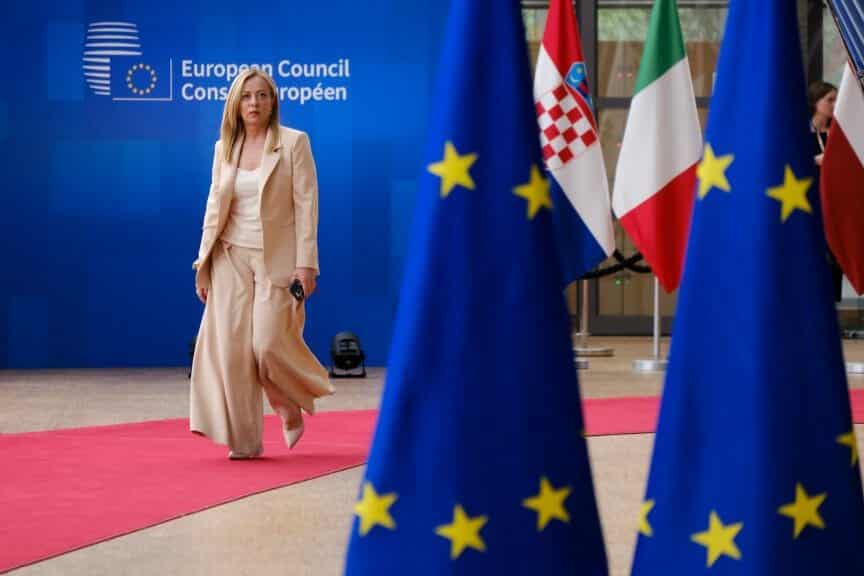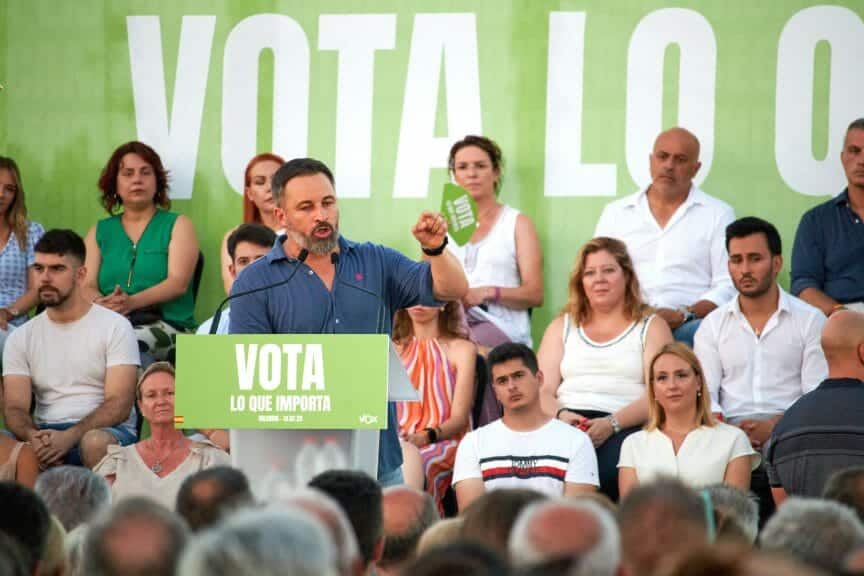Spain is in legislative limbo.
Last week, the Spanish public elected representatives for the Cortes Generales, Spain’s bicameral legislature. However, none of the parties reached the absolute majority needed under Spain’s electoral system, 176 out of 350 seats.
Spain’s Prime Minister, Pedro Sánchez, called this snap election to take place on Sunday, July 23, earlier than its scheduled date. The election served as a call to action to remedy low voter turnout in local elections held earlier throughout Spain.
Now, the PM has more work ahead of him as the main parties must create a new government by August 17, since the competing parties in Spain failed to win an absolute majority.
The closest party to the required seat count was the Conservative People’s Party (PP) which won 136 seats. Prime Minister Sánchez’s Spanish Socialist Workers’ Party (PSOE) won 122 seats — neither enough to form a government.
These main parties will have to work with many of the smaller parties throughout the country to gain more support.
Two of the smaller parties are Sumar, with 31 seats, and the far-right party, Vox, with 33 seats. Vox notably lost 19 seats, reducing the predicted support of the far-right in Spain.
The right’s loss could be indicative of right-wing politics and their success, or lack of, throughout Europe.
The far-right in Europe
Far-right parties are popular across Europe, and generally favor national identities over immigrants and migrants. Notable parties such as the Sweden Democrats, France’s National Rally party and Finland’s Finns Party, all promote a nationalistic view in their policies.
Italy, especially, has a strong right-wing following as the current Prime Minister is Giorgia Meloni of the Brothers of Italy party.
As a close ally of Spain’s Vox party, Meloni supported the right in a speech televised in Valencia, Spain.
“It is crucial that a conservative, patriotic alternative be established,” Meloni said according to a Politico report. “Europe needs to become aware of its role and influence again to be a political giant instead of a bureaucratic one.”
As much as Meloni enacts conservative and right-wing policies in Italy, she’s still governing more moderately than expected on the foreign policy side.
Meloni met with United States President Joe Biden a couple of days ago, and the U.S. National Security Spokesperson, John Kirby, even said Italy is a competent NATO ally.

Meloni, like other right-wing leaders in Europe, has issues with the European Union, especially on migration policies. However, her nationalistic and anti-migrant party is supportive of Ukraine and NATO.
Vox is similar in this view, as its leader said Ukrainian immigrants are welcomed and accepted over Muslim immigrants.
Vox, Brothers of Italy and other far-right parties in Europe also share views on any social issues such as opposing LGBTQ rights and abortion.
In Meloni’s speech supporting Vox in Andalusia, Spain last year, she yelled in favor of the natural family and against the LGBTQ community.
However, these views from the far right haven’t directly reflected the Spanish government since the death of dictator Francisco Franco in 1975. After Vox lost seats, this trend may continue if Spain continues to reject the far right.
In order for Vox and the PP to gain control of the Spanish government, they need the support of smaller parties. If not, party leaders may face new elections and months of political stagnation.
After Spain’s Election
In a few weeks, King Felipe VI will meet with the leader with the greatest support to form a new government.
If 176 MPs provide support, the leader will become prime minister. If not, a second vote will be held for a simple majority, or risk dissolving parliament in November.
Party leaders on both sides of the political spectrum must decide if they’ll work with the PSOE or PP.
Spain’s Right Parties

In order to reach an absolute majority, the major right parties (PP and Vox) need to work with the remaining right parties who gained seats in Spain’s election.
The centre-right party, Canary Coalition (CC), is a centre-right nationalist party mainly in the Canary Islands. By combining with this party, the right will gain one extra seat.
Navarrese People’s Union (UPN), is another regional conservative party in Navarre, one of the wealthiest regions in Spain. By combining both regional conservative parties, the right will still need five more seats to reach an absolute majority.
The Basque Nationalist Party (PNV) can possibly offer the five extra seats as a center-right party. However, the PNV is unlikely to support the PP party because of their support of the nationalist party Vox.
As the PNV is a separatist party, it’s difficult to combine sides — unity in Spain or political independence for the Basque Country.
Both the PP and the PSOE will likely need the PNV in their coalition government to meet the required seats.
Spain’s Left Parties
On the left, PSOE would need a combined 23 extra seats from the minor parties.
The PSOE appeased regional pro-independence parties, including the Republican Left of Catalonia (ERC) with seven seats, and Together with Catalonia (Junts), the other Catalonian regional party with an additional seven seats.
The EH Bildu party is a left-wing Basque Country party with six seats in government. The Galician Nationalist Bloc (BNG) is a Galacian independence, left-wing party with one seat. If the PSOE can appease these independence parties, they will have 179 seats.
In summary, the left will have more seats if they’re able to work with the smaller left and independence parties. The right may not be as lucky.
This trend from Spain’s election may be a prediction of the future of European politics.
If the PSOE and its coalition government control Spain yet again, the far right will miss yet another opportunity for power. Out of the limelight, only time will tell if the right is able to gain more numbers again. If not, they may fall into the background.














